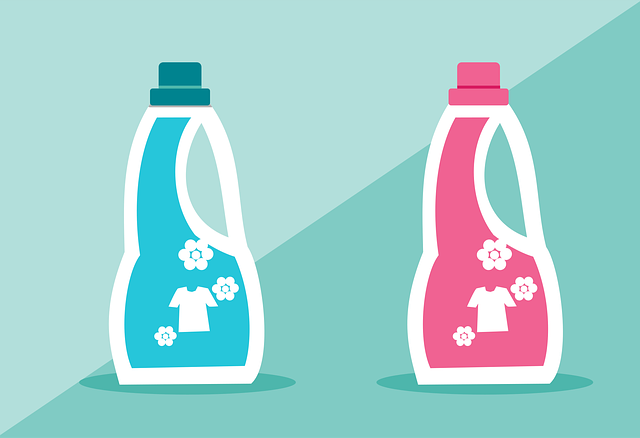Water heaters significantly impact home energy usage. Optimizing efficiency involves understanding temperature control and heating cycles. Regular maintenance with filtration systems prevents sediment buildup, enhancing performance and reducing energy consumption. Tailoring heater settings to household needs ensures optimal usage. Modern filters improve water quality, conserve energy, and extend tank lifespans. Regular cleaning and timely maintenance are crucial for efficient water heaters. Monitoring usage patterns and adjusting settings maximize efficiency, reduce bills, and promote sustainability.
Maximize energy efficiency with your water heater and say goodbye to soaring utility bills. This guide breaks down everything you need to know about optimizing your water heater, from understanding its energy usage to regular maintenance tips. Learn how to assess your hot water needs, adjust temperature settings for maximum comfort and efficiency, and even explore the benefits of advanced filtration systems. Take control of your home’s heating today!
- Understand Water Heater Energy Usage
- Assess Your Hot Water Needs
- Optimize Temperature Settings
- Consider Filtration Systems
- Regular Maintenance Tips
- Monitor and Adjust Usage Patterns
Understand Water Heater Energy Usage

Water heaters are often energy guzzlers, accounting for a significant portion of a home’s overall energy consumption. Understanding how your water heater uses energy is the first step in optimizing its efficiency. Modern water heaters come with various settings and features that allow you to control temperature, heating cycles, and stand-by heat loss—all of which impact energy usage.
In addition to adjusting these settings, consider incorporating filtration systems as part of your strategy for enhancing efficiency. Sediment and mineral buildup in water heaters can reduce their performance and increase energy consumption. Regular maintenance, including filtering, ensures optimal operation, prolongs the life expectancy of your heater, and contributes to overall energy savings.
Assess Your Hot Water Needs

Understanding your hot water needs is a crucial step in optimizing your water heater’s efficiency. Start by evaluating your household’s daily hot water usage. Consider factors like the number of occupants, their age groups (children and adults have different hot water consumption patterns), and daily routines. For instance, families with young children might require more baths, while office workers may only need hot water for cooking or cleaning.
Additionally, assess the locations where hot water is used most frequently. Kitchens and bathrooms are common hotspots. You can also consider installing filtration systems to improve water quality and reduce the need for frequent replacement, which can indirectly impact energy usage. By tailoring your water heater settings to match these needs, you’ll ensure optimal performance and potentially save on energy bills.
Optimize Temperature Settings

Optimizing water heater temperature settings is a key step in enhancing energy efficiency, especially when paired with effective filtration systems. Most modern water heaters come with adjustable thermostats, allowing you to precisely control the temperature according to your needs. A slightly lower setting—around 120°F (49°C)—is recommended for everyday use as it provides hot water while conserving energy. This is particularly beneficial if your household uses energy-efficient appliances and practices mindful water usage.
Remember, the ideal temperature can vary based on factors like climate and personal preference. However, avoiding extremely high settings not only saves energy but also prevents scalding and extends the lifespan of your water heater. Regularly checking and adjusting these settings is a simple yet powerful way to reduce your energy bills and contribute to a more sustainable lifestyle.
Consider Filtration Systems

Many modern water heaters come equipped with advanced features, including built-in filtration systems. These systems help improve water quality by removing sediment, chlorine, and other impurities that can accumulate over time. By investing in a high-quality filtration system, you not only enhance the taste and smell of your water but also contribute to the overall efficiency of your water heater. Sediment buildup can insulate the tank, preventing heat from reaching the water, which in turn increases energy consumption. Regularly maintaining and replacing filters can help maintain optimal performance and extend the lifespan of your water heater.
Additionally, some advanced filtration systems employ UV technology or chemical treatment to kill bacteria and viruses, ensuring cleaner and safer water for your household. These systems are particularly beneficial for areas with hard water or known water quality issues. Incorporating a suitable filtration system into your water heater setup is a strategic step towards maximizing energy efficiency and ensuring consistent access to high-quality water.
Regular Maintenance Tips

Regular maintenance is key to keeping your water heater running efficiently and prolonging its lifespan. One crucial aspect is ensuring proper filtration. Over time, mineral deposits and sediment can build up in the tank, reducing water heating efficiency and potentially causing damage. Installing a water filter system specifically designed for heaters can help prevent this buildup. These systems remove impurities, improving water quality and saving energy.
Additionally, regular cleaning and flushing of the heater are essential. Most manufacturers recommend periodic flushing to remove sediment and ensure optimal performance. Keep an eye on any unusual noises or temperature fluctuations, as these could indicate issues that require professional attention. Timely maintenance, including filter changes and routine checks, will contribute to a more energy-efficient water heating system.
Monitor and Adjust Usage Patterns

Regularly monitoring your water heater’s performance is key to maximizing efficiency, especially when integrated with home filtration systems. Keep an eye on usage patterns—peaks during morning routines or evening showers can indicate significant energy consumption. Adjusting settings according to these patterns ensures optimal temperature control. For instance, if you notice high demand in the mornings, consider lowering the heater’s setting overnight and increasing it before peak hours in the morning. This simple adjustment can significantly reduce energy usage without compromising comfort.
Additionally, understanding your family’s or household’s hot water consumption habits is vital. Families with younger members might require higher temperatures for safety, while households adopting energy-efficient appliances can lower ideal heater settings. Regularly reviewing and fine-tuning these adjustments in line with actual usage ensures the system works efficiently, reducing not only energy bills but also extending the lifespan of your water heater and filtration systems.
